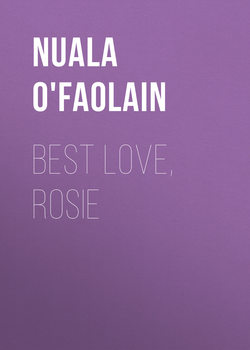Читать книгу Best Love, Rosie - Nuala O'Faolain - Страница 2
На сайте Литреса книга снята с продажи.
ОглавлениеIRISH PRAISE FOR
Best Love, Rosie
“This is a rich, frank and heartening novel. It is an excursion and an
education; a long, luxurious wander through a library of bold, beautiful
and inimitable things. It is vintage Nuala, one last time.”
—Belinda Mckeon, The Sunday Irish Times
“Everyone feels like they knew Nuala. And it is impossible to separate
Nuala from the novel—the similarities with both Rosie and Min
are most definitely there—which makes reading it a very strange
experience. The way she brought the D-word into our national
conversation—how she laid bare her life and death in an attempt to
better understand society and the way the world worked—was not
always easy to take. However, her novels are, and it is rather comforting
to have one last bittersweet journey with Nuala.”
—Independent.ie
“…Rosie generally wears her learning, and her philosophy, and her
spirituality, lightly. The novel succeeds in blending the deep and the
shallow, the wise and the mildly absurd, in a series of seamless transitions
from kitchen to library, frocks to philosophy, body to mind.…But the
mixture of the light and the serious is undoubtedly also brought about
by the author’s own attitude to life. O’Faolain was brilliant, educated,
deeply thoughtful, but she was down to earth and despised pretension.
So does her book. That is its great charm, and that is why it resists
categorisation. There will be no ready made niche for it in the bookshop.
It is just Nuala.”
—ÉIlís Ní Dhuibhne, The Irish Times
“The powerful, overriding message in this time-challenging tale
of Min and Rosie is actually a simple one: we are only ever trapped
in our own heads, not our bodies—no matter how old they are.
And so we must grab our chances while we have them, live in the
now and put our best heart forward. Always.
Who else to sum it all up then, than Nuala O’Faolain herself—in the
optimistic words with which she concludes the introduction to her
last ever book: ‘Even the most seemingly moribund life is open to the
possibility of change—in youth, in middle age, and always.’”
—Sile McArdle ©Independent.ie
